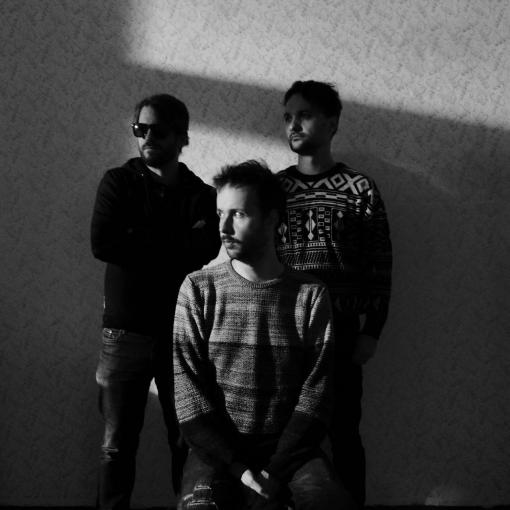It never ceases to amaze me when I see the volume of ideas from Martin Kyšperský and his band Květy. Only in 2017, all this happened: Martin received the Anděl prize for his solo album Vlakem (“By train”). With Květy, they played the role of a communist era organisation band brilliantly, singing his “normalisation” period hits in the series Svět pod hlavou (“World under your head”) (which received a well-earned Český lev award a year later). In their new line-up with Ondřej Kyas, Květy released the brilliant album Komik do půl osmé (“A comedian till half past seven”) (it’s sad that it didn’t get an Anděl, but I think the culprit for that is the reducing of genre prizes and a “bit” of chaos in the new category of Alternative). The book Průvodce po albech a historii kapely Květy (The guide to the albums and history of the band Květy) was released and with it also the album Spí vánoční pták (“The Christmas bird sleeps”). In the meantime, Květy started the YM project, in which all three members will present songs in individual unexpected genres. It was begun by once again by Martin Kyšperský with a programme of country songs – the public premiere took place with the guest artist Petr Uvira in a live broadcast of Radio Proglas in December 2017. For 2018, the electronic songs of Aleš Pilgr and hopefully also the folktronica of Ondřej Kyas are in preparation.
But back to the end of 2017 and to the album, with a name you will understand if you read it out loud (Trans – the name sounds like Spívá noční pták, which would translate as “The night bird sings”). The album does not have anything (except a December release date) to do with Christmas. Simply put, one could say that it is a collection of songs that couldn’t fit on to the album Komik do půl osmé. The band, in their new line-up, rehearsed and recorded thirty new songs and one album just wasn’t enough… in reality, it is neither garbage nor surplus. Both albums complement each other, as the band explains in the aforementioned book: “The second album is less electro, but also dirtier and more experimental, with a partial return to acoustic instruments.” By the way, it is also a pity that the CD version that I have at my disposal does not include, apart from the list of songs, any other data, not even the texts, which are very important with Květy. On the other hand, strong added value are the comments to every song (this is true for also the preceding albums), contained in the book that you can buy separately or in a package with the LP disc and CD.
Spí vánoční pták may be “less electro”, but the character, structure and “tectonic” of its songs are relatively close to Komik do půl osmé. A typical example of this is the song Musíme jít (“We must go”), which is based solely on singing, drums and percussion instruments, evocative of electronic dance music. It is basically a similar method of acoustic illusion used by jazz bands such as GoGo Penguin - “electronic” music played on acoustic instruments. Even the other songs on the album are based on strong rhythmic samples, onto which other instruments and vocals are then added – for example Liány (“Creepers”), where Kyšperský expanded upon the well-known melody. The simple repeating figure is also the basis of Chobotnice (“Octopus”), allegedly formerly a folk song, changed into “dark synth-pop”, this time the model of GoGo Penguin the other way around. The model of the song being built around a very simple base is repeated in the song Houby rostou (“Mushrooms grow”) (“This is a song honestly built on one chord”).
Despite the similar approaches and the unity of the assembly and the place of recording, despite the logical difference from Komik do půl osmé, Spí vánoční pták feels to me to be the least compact and distinct of Květy’s 2017 albums. I didn’t find any hits like Odpočinout (“To have a rest”), nor a lot of significant songs like Komplikovaná růže (“Complicated Rose”), Kouzleník or Ptáček (“Birdy”). However, there are some: Na nádraží (“On the station”) (“Pavel Klusák once told me that it wouldn’t be bad to write a song for Marta Kubišová”), Policajti (“Policemen”), who seem to combine Květy typically playing with rhythm with an almost pop melody, and especially Sólo strýček (“Solo uncle”) with its humorous text (“To only have one toothbrush in the bathroom”) and nervous bass, which naturally take you to the second part of the double song, Kamión, another of Kyšperský’s observational probes (“Everyone should see a tram on a lorry on a night-time highway at least once in their life!”)
By the way, I realised one thing. Shortly after recording these songs, Martin Kyšperský worked on his country project. And already here he has songs about tree stumps with long roots (Chobotnice), mushrooms (Houby rostou) and songs Na nádraží and Kamión. As if he was fascinated by natural and country topics… Notwithstanding real or pretended electro.
Květy: Spí vánoční pták, publisher: Polí5 2017. 10 songs. Total playing time: 40:23
































No comment added yet..